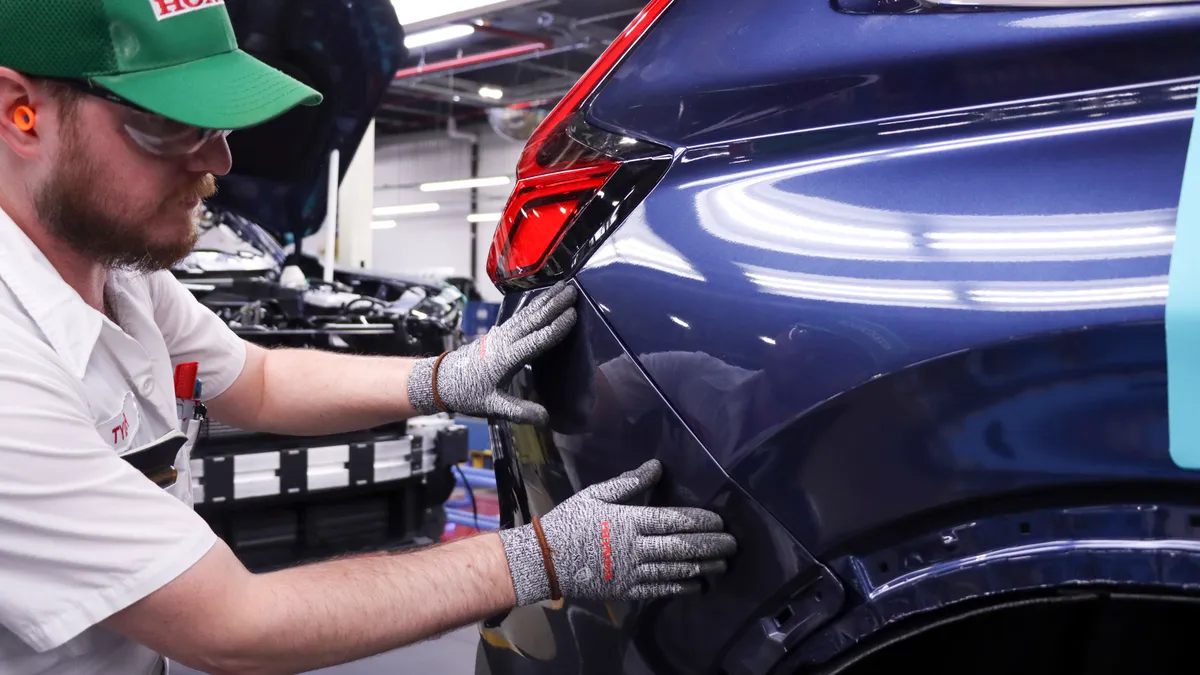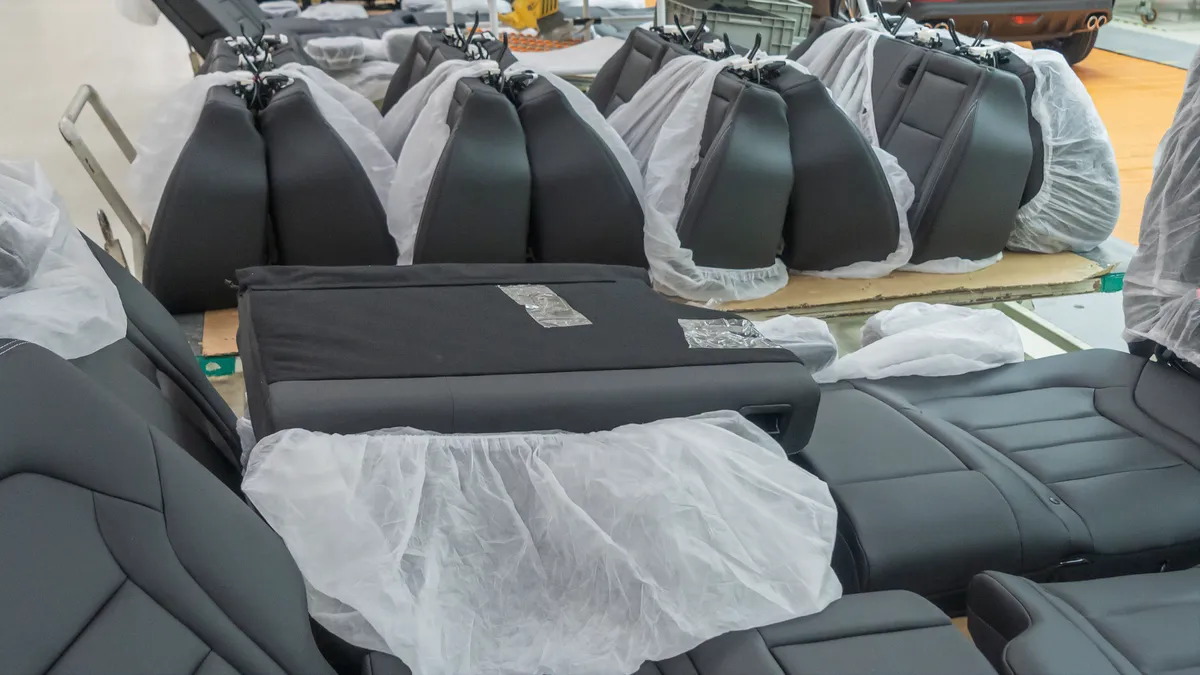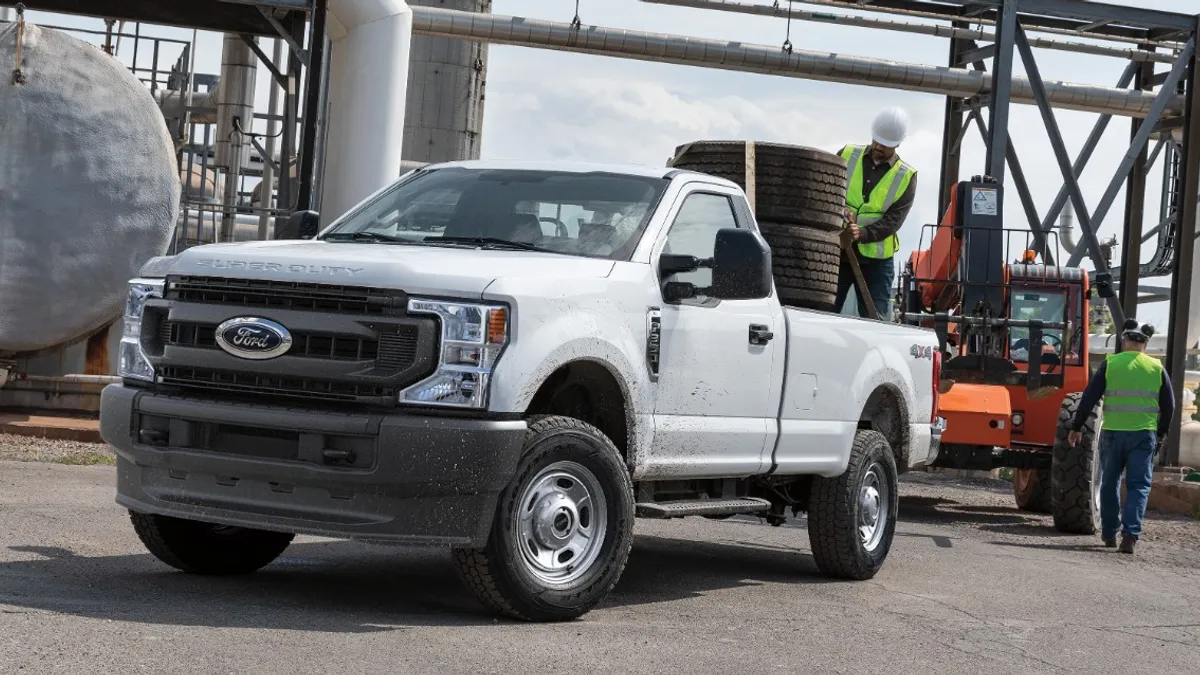Dive Brief:
- Autoworkers have filed unfair labor practice complaints against Honda, Hyundai and Volkswagen for union-busting activities, the United Auto Workers union said Monday.
- The UAW said workers at Honda, Hyundai and Volkswagen plants in Indiana, Alabama and Tennessee, respectively, face retaliation from management for rallying their coworkers to join the union and signing union cards to show their support.
- The union organization efforts at the three automakers come after the UAW won record-high wage hikes in the new labor contracts with General Motors, Ford and Stellantis.
Dive Insight:
With the strike over against the Big Three, the UAW continues to apply pressure to nonunion automakers.
The UAW said workers at Honda’s plant in Indiana are being targeted by management for their pro-union activity after hundreds of workers signed union cards.
“We are filing an unfair labor practice charge against Honda because of management illegally telling us to remove union stickers from our hats, and for basically threatening us with write-ups,” Josh Cupit, an autoworker at Honda, said in a video released by a More Perfect Union, a social welfare nonprofit. “It’s essentially to show Honda that we know what our rights are and that they’re not gonna bully us and we’re not gonna back down from ’em.”
Honda, however, denies the accusations of union-busting activities. The company says it will not interfere with its employees' pro- or anti-union activities.
“Honda encourages our associates to engage and get information on this issue. We have not and would not interfere with our associates’ right to engage in activity supporting or opposing the UAW,” Honda spokesperson Chris Abbruzzese said in an email.
At Volkswagen’s plant in Chattanooga, Tennessee, the UAW said that over 1,000 workers signed union cards in less than a week — with hundreds more continuing to sign up.
Nonunion auto workers trying to organize at Volkswagen’s plant in Tennessee say they have faced harassment, the confiscation and destruction of pro-union materials in the employee break room, and prohibitions against workers distributing union literature or discussing union issues in non-work areas on non-work time, according to the UAW.
Volkswagen previously told multiple media outlets that it respects “the right of our workers to determine who should represent their interests in the workplace.” But the UAW is accusing the automaker of aggressively pushing an anti-union message in forced meetings and internal literature handed out to workers.
Autoworkers at Hyundai’s Montgomery, Alabama, plant claim management confiscated, destroyed or prohibited pro-union materials from non-work areas. Beverly McCall, a team member at Hyundai’s engine assembly plant, told the UAW that company management asked her to stop handing out pro-union leaflets on non-work time.
“The manager came up and told me you can’t be out here doing that,” said McCall in the video released by More Perfect Union.
Like Honda, Hyundai disagrees with the union’s claims and denies the accusations.
“The union’s characterization of events in its press statement do not present an accurate picture, and we look forward to having a fair opportunity to present the facts through our participation in the legal process,” a Hyundai spokesperson said in an email.
The union said thousands of autoworkers at more than a dozen nonunion automakers launched simultaneous campaigns across the country last month to join the UAW. It also said the organizing efforts at nonunion plants will cover nearly 150,000 autoworkers, including those of at least 13 automakers, including Honda and Hyundai.
The UAW currently represents around 146,000 autoworkers at the Big Three, but the union president is encouraging more to join.
“These workers are showing management that they won’t be intimidated out of their right to speak up and organize for a better life, " UAW President Shawn Fain said in a statement. “From Honda to Hyundai to Volkswagen and beyond, we’ve got their back. The auto industry’s record profits should mean record contracts for these workers, too.”














